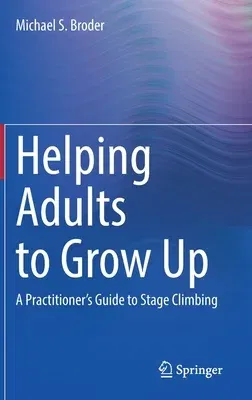This book presents Stage Climbing, an innovative seven stage
developmental model as a new tool to help practitioners recognize
cognitions, attitudes and behaviors-- typical of different life stages
and thus levels of maturity-- in order to select the most effective
treatment interventions with adult clients. It is the first book to
integrate cognitive behavioral (CBT) concepts into the entire human
development spectrum for any area of life that clients choose to work
on. It demonstrates how resistance to change can reflect thinking and
behavioral patterns that are characteristic of earlier developmental
stages. It also presents a model of maturity along with treatment
strategies and action steps to motivate change, as well as reactivate a
client's natural and organic maturation process. Practitioners at all
levels from diverse disciplines and modalities will learn to assess how,
why, and where clients are "stuck" developmentally.
This volume offers practitioners, who treat individuals, couples and/or
families a psychologically integrated road map that guides clients to
take responsibility for living their best life, by removing self-created
obstacles which prevent this from occurring naturally. The integration
of the most robust aspects of psychodynamics, developmental psychology,
and cognitive behavioral therapy will help the field continue to evolve,
by providing state of the art interventions to help clients make mature
and healthy changes in their lives. All mental health practitioners,
regardless of their therapeutic orientations can use the strategies in
this book to assess the underlying core belief patterns of clients at
each life stage, and apply appropriate interventions to challenge
self-defeating beliefs, and proactively work on agreed upon desired
outcomes.

